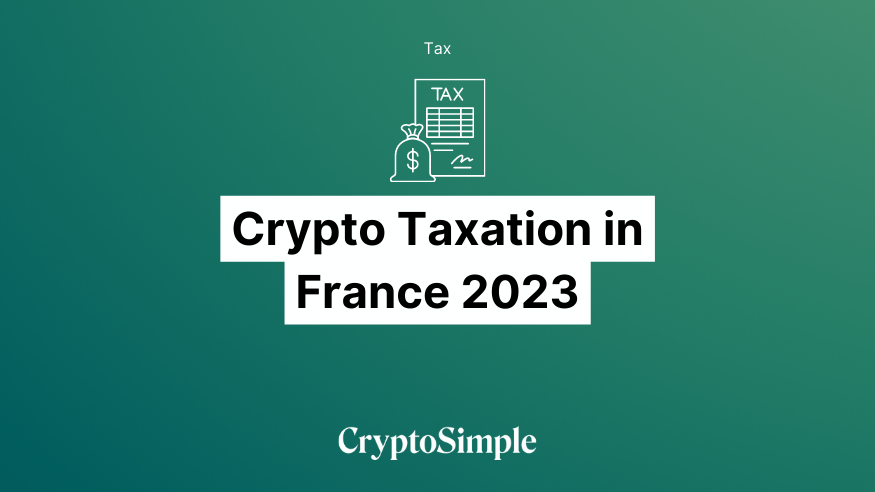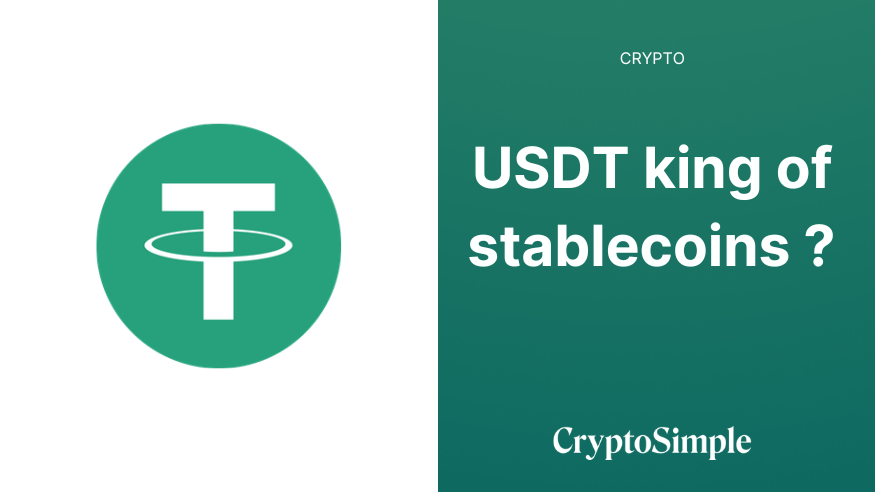Cryptocurrency has gained popularity in recent years, with many individuals and businesses investing in digital currencies. However, the tax implications of cryptocurrency can be complex and confusing. In France, taxpayers are required to comply with specific tax laws and regulations when dealing with cryptocurrency.
In this blog post, we will discuss crypto taxation in France, including the tax laws, challenges, strategies, and reporting requirements.
Basic Rules of Crypto Tax Laws in France
The tax laws and regulations surrounding cryptocurrency in France are constantly evolving. Cryptocurrency is taxed in France, but under specific conditions. According to the French tax authority (DGFiP - Direction Générale des Finances Publiques), cryptocurrency transactions are taxable when they generate profits. For example, if an individual buys cryptocurrency and sells it at a higher price, the profits from the transaction are taxable. Crypto mining is also taxable in France, and the income generated from mining activities must be declared on tax returns.
On the other hand, holding cryptocurrency, without earnings, without transaction, without conversion into euros, does not require a tax declaration.
Taxable Situations
Cryptocurrency transactions are taxable in France when they generate profits. Here are some examples of taxable crypto transactions:
- Selling cryptocurrency at a higher price than the purchase price.
- Trading cryptocurrency for other assets or currencies.
- Using cryptocurrency to purchase goods or services.
Non-Taxable Crypto Transactions in France
Not all cryptocurrency transactions are taxable in France. Here are some examples of non-taxable crypto transactions:
- Gifting cryptocurrency to family or friends.
- Holding cryptocurrency in a personal wallet.
- Donating cryptocurrency to a charitable organization.
Crypto Tax Laws in France in 2023 and above
Since 2019, the majority of profits taxed on cryptocurrencies in France have been so at a rate of 30% (Flat Tax), which consisted of 17.2% for social security contributions and 12.8% for taxes. Traders were also classified between occasional and professional traders:
Occasional traders
- Who buy and sell cryptocurrency on an irregular basis, are taxed on the profits they generate from these transactions.
- They were subject to the Flat-rate taxation (PFU) at a 30% rate. The latter includes a 12.8% income tax and a 17.2% social security contribution.
- In some scenarios of high earning, occasional traders may be required to pay an additional 4%.
Professional traders:
- Who engage in cryptocurrency trading as a business activity or trade at a high frequency, are subject to additional tax rules and regulations.
- They must declare their profits as business income, and their tax rates may differ from those of occasional traders. The tax rate depends on the individual's income bracket and can range from 0% to 45%.
Starting from January 1, 2023, the taxation of cryptocurrencies has become slightly more favorable. The new tax rates for 2023 will be applicable when cryptocurrencies are exchanged for euros or other fiat currencies.
Moreover, only traders registered in the Trade and Companies Register (RCS) will be considered as professionals. Indeed, the tax authorities have created a new qualification – the “usual trader”.
- If the annual capital gains do not exceed 305 euros, no tax is applicable, 0%.
- If the annual gains in cryptocurrencies exceed 305 euros, a 17.2% social security contribution applies for individuals who are not taxable.
- If you are taxed at 11% (IR) and your annual capital gains in cryptos meet 305 euros, then you will have to pay 17.2% in addition to your 11%. 28.2%
- Finally, those who are taxed between 30% and 45% will benefit most by opting for the Flat Tax option on their capital gains.
Reporting My Crypto Taxes?
The DGFiP is aware of taxpayers' crypto holdings, and taxpayers are required to report their crypto transactions on their tax returns. The DGFiP has the right to investigate taxpayers who fail to comply with the tax laws and regulations.
Tax authorities have the capability to trace accounts even on foreign cryptocurrency exchange platforms. Numerous exchanges are eager to establish their presence in a European country, and they consent to abide by the EU's "right to communication" policy.
If you receive a cryptocurrency exchange transfer, your bank will likely report it to TracFin (an organization responsible for detecting tax fraud), and most tax audits are initiated based on TracFin's information.
Failing to report crypto taxes can result in severe consequences, including penalties and fines. Taxpayers who fail to declare their crypto transactions can be fined up to 10,000 euros or 5% of the undeclared amount, whichever is higher.
Strategies for Navigating Crypto Taxation
Navigating crypto taxation in France can be challenging. Here are some tips to help taxpayers comply with the tax laws and regulations:
- Keep detailed records and documentation of all crypto transactions, including buying, selling, trading, and mining.
- Seek professional tax advice and assistance to understand and comply with the tax laws and regulations.
- Declare all crypto transactions on tax returns and pay the applicable taxes.
- Use a tax software tool to help calculate taxes and complete tax forms accurately.
How to Report Crypto Taxes in France
Reporting crypto taxes in France can be challenging, but taxpayers must comply with the tax laws and regulations. Here's how to report crypto taxes in France:
- Complete the relevant tax forms and declare all crypto transactions.
- Pay the applicable taxes
- Keep accurate records and documentation of all crypto transactions, including buying, selling, trading, and mining.
- Seek professional tax advice and assistance to ensure compliance with the tax laws and regulations.
There are three forms you should be aware of when filling out your tax reports:
- Form 2042↗ : declare the capital gain realized
- Form 2086↗ : report purchases and sales of cryptocurrencies
- Form 3916↗ : declaring a crypto account abroad
Taxpayers can also use tax software tools to help calculate taxes and complete tax forms accurately. However, it's important to note that tax software tools may not be accurate in all cases, and taxpayers should always seek professional tax advice to ensure compliance with the tax laws and regulations.
Conclusion
Navigating crypto taxation in France can be challenging, but it's essential for taxpayers to comply with the tax laws and regulations. Cryptocurrency transactions are taxable in France, and taxpayers must declare their crypto transactions and pay the applicable taxes. Taxpayers can use professional tax advice, accurate record-keeping, and tax software tools to help navigate the complexities of crypto taxation in France. By complying with the tax laws and regulations, taxpayers can avoid penalties and fines and ensure their crypto activities are legal and compliant.








